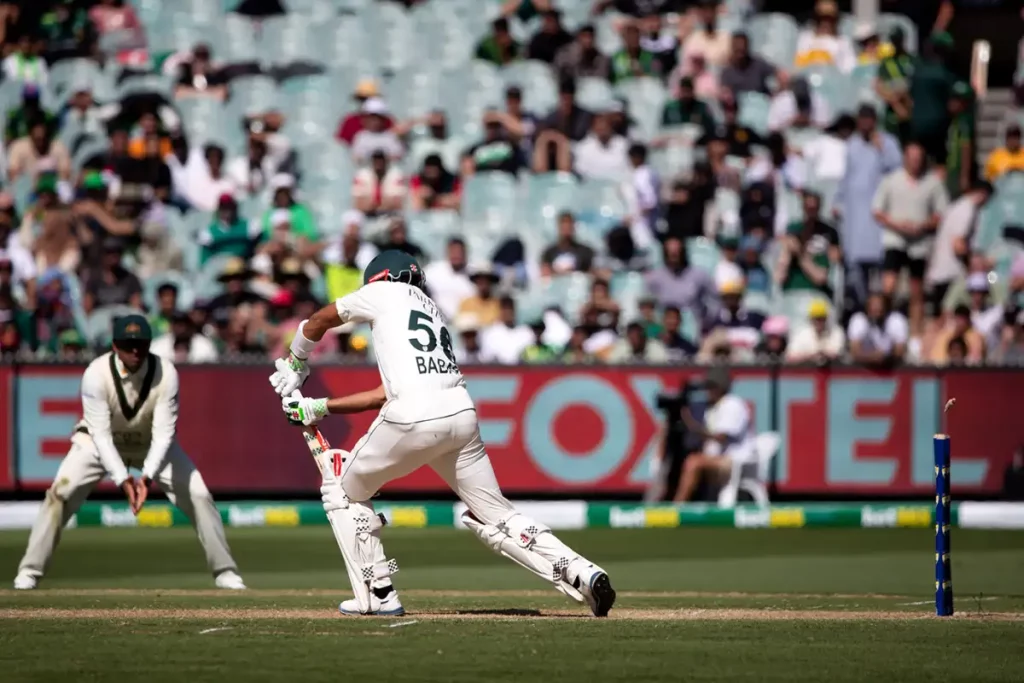There is a first time for everything. But not all first times need to be experienced. Some of them are better left unencountered. Ask Babar Azam, who ticked off his first first in this series, but if given a choice, he would rather let it pass.
Failing yet again to score big during the first Test match against Bangladesh at the Rawalpindi Cricket Stadium, Babar’s no-run streak has survived another innings. It has been almost two years since the last time he scored a 50-plus run. Although Pakistan has only played seven Test matches since then, for a batter like Babar a barren run of seven games even is a cause of great worry. Since the start of the previous year, he has averaged 23 with the bat in Test matches. Thats nearly half of what his career average currently is. His run drought has dipped his pre-2023 career average by 10 runs per match. But he knows this, better and a little too much than anyone else. Perhaps, this is the very reason he gave his wicket away in the ongoing Test match, the way he did.
Against Bangladesh, he offered his wicket to the softest of all dismissals. With two of Pakistan’s batters already back in the hut, he succumbed to a Shoriful Islam short ball. It was a ball that should have been left alone. You don’t try to put your bat on the balls going towards the leg side. The 2022 Babar would not have let this ball kiss the inside edge. Neither would any batter with a clear mind have done this. But this Babar who knows his run famine has already stayed longer than it should have, edged the ball down the legside and knew almost instantly what was about to happen next.
This is his eighth duck in his eight-year-long career. The last time he departed without scoring any runs was back in 2021 in Harare. It was a match against Zimbabwe. Before that match, he got out for a duck in Tests in 2018. This means he has never before lost his wicket for naught in any edition of the World Test Championship. This is also his first duck in home conditions. But this is not the first time he has experienced a slump in his form. The early days of his career saw him struggling against a few technical flaws, which he corrected with the skills he has. There was also a minor drop in his batting average during the start of this decade. He overcame that too.
Luckily for Pakistan (and for Babar this time), Saim Ayub and Saud Shakeel saved them from further humiliation. By the end of the day, Pakistan looked more comfortable than they usually do in the matches Babar fails to score.
Babar is nearing the third decade of his life. No one knows how long he can elongate his career. With Pakistan already playing very few number of Test matches, he needs to stop getting the chances run away from him. Pakistan now have a group of decent batters besides Babar. Some of them are young, technically sound, and on their way to becoming reliable players for their team. If anything, this knowledge should serve as a breathing space for the 29-year-old. While the other batters keep the team’s affairs under control, the Lahore-born should confront the devils that have been bothering him. He still has six and a half home matches left to get back to his best version. A player of his stature can not waste away before reaching his ceiling. And he definitely has not reached his peak yet.



